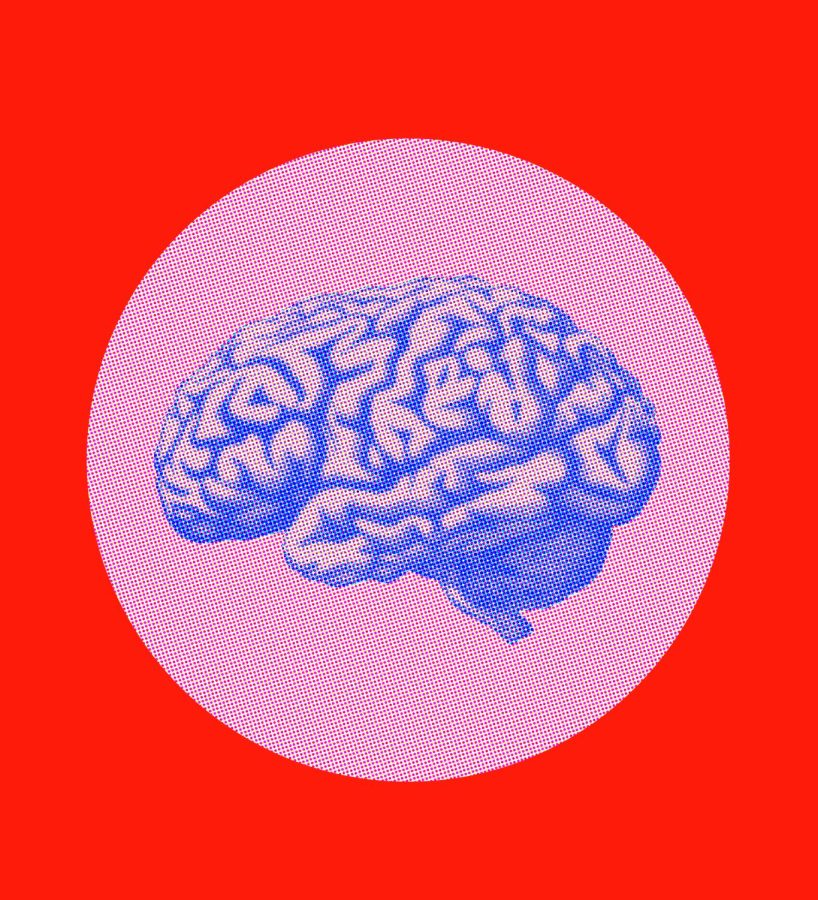Buening: Taking on a Broken Collegiate System with Dr. Susan Chamberlain
(Graphic by Sydney Stam | The Daily Utah Chronicle)
February 24, 2022
College is overwhelming — most students, myself included, are too familiar with the feeling. More than that, it’s become the expectation. It seems almost impossible to find a balance. If I slack too much, my obligations will bury me. If I give too much, my mental health falls apart. Unfortunately, life doesn’t wait for our burdens to subside before dealing out disasters. I spent my entire life defining my self-worth by my academic excellence. I let my well-being fade to the background while my grades took center stage. So, for years, I pent up unaddressed traumas — not something I would recommend.
Most of us maintain a precarious balance of schoolwork, job obligations, social lives and other time commitments. But sometimes, that balance is disturbed unexpectedly. When it all becomes too much and our motivation feels crippled, measuring up to lofty expectations seems next to impossible. At the end of the day, we cannot carry these excessive burdens by ourselves — especially within a demanding collegiate system. Prioritizing our health is critical and includes utilizing the available resources, but it also requires that we achieve systemic change. Academia has a long way to go in better accommodating the mental health of students.
No one knows the ins and outs of our university’s mental health crisis quite like the counseling center’s staff psychologists. To learn from their involved perspective, I spoke with Dr. Susan Chamberlain, someone on the front lines of the U’s mental health battle. It was easily one of the most powerful conversations I’ve had, delving into issues like happiness, oppression, sexual assault, suicide and more. Chamberlain views mental health as a social justice issue. She started with community health in Las Vegas, working with children in foster care. Because of that unique experience, she dealt with the consequences of “a number of intersecting kinds of systems of oppression and privilege.”
Eventually, while working toward her doctorate, Chamberlain worked at a college counseling center for the first time. College-aged students deal with unique mental health challenges and therefore require unique accommodations. As of 2020, nearly 40% of college students experienced depression, one in three reported anxiety and one in seven reported suicidal ideation. Many different pressures contribute to this reality. First, is the inherent pressure of being a college student. Then, school is ridiculously expensive, especially if you come from a lower socioeconomic background. As Chamberlain said, many students carry the notion that college is a societal expectation — that admitting its difficulty is a sign of weakness. Then add on the collective stress of a global pandemic. Since COVID-19’s outbreak, 71% of students indicated increased levels of stress and anxiety. College is hard, and life is hard enough.
University systems aren’t built to cater to every population. Despite progress, many systemic flaws persist. Chamberlain, whose job is to analyze context and power dynamics, explained that universities were “built to meet the needs of white, cisgender, heterosexual men.” Men who, oftentimes, had the leisure time and someone at home to take care of things. Now, accessibility has improved and people from multicultural, diverse backgrounds attend college. This poses another pressure, though. For example, managing an education is exhaustive enough without the additional pressure of being a first-generation student. Underneath the surface, we may deal with complicated family circumstances, discrimination, financial struggles or neurodivergence — broadly including anything from ADHD, autism and depression to bipolar disorder. It isn’t just the most privileged few in college anymore, it’s all of us. Unfortunately, a system that prioritizes the needs of the “neurotypical” is not equitable.
When Chamberlain began her collegiate journey, she for the “first time, started dealing with trauma from [her] childhood.” I’m sure most of us commiserate with this experience. One of the inherent struggles of college students is adjusting to “adult-like responsibilities without the skills and cognitive maturity of adulthood.” In our newfound independence, we finally have the space to process years of upbringing. Evaluating our psyches is an overwhelming undertaking. Part of maturing is recognizing that we must take care of ourselves first.
Finding balance, as Chamberlain said, is more akin to “walking on a tightrope over the Grand Canyon” than achieving some kind of “full lotus position” type of peace. “When you’re walking on a tightrope, every muscle is engaged, and it feels stressful to maintain that balance.” Luckily, we don’t have to do it alone. The U’s counseling center — on Instagram as @uofucounseling — is one such resource. As well as the Women’s Resource Center, victim-survivor advocates and Women’s Resource Center operate under strict confidentiality. Their experts can put us in contact with the right support groups, resources and professionals to help. And that’s what they’re there for: to help.
At the end of the day, it’s normal to feel out of balance. Whether we like it or not, the human experience includes dark moments, internal turbulence and imperfection. So, while college isn’t easy, it shouldn’t be impossible either. No one should have to sacrifice their mental health in the pursuit of a degree. Instead, we should expand upon our resources and realign with more holistic priorities. Like Chamberlain said, “It can be a revolutionary act to advocate for yourself and for accommodations.” And by taking that leap, we can better maximize the well-being of students, faculty and well, everyone.








